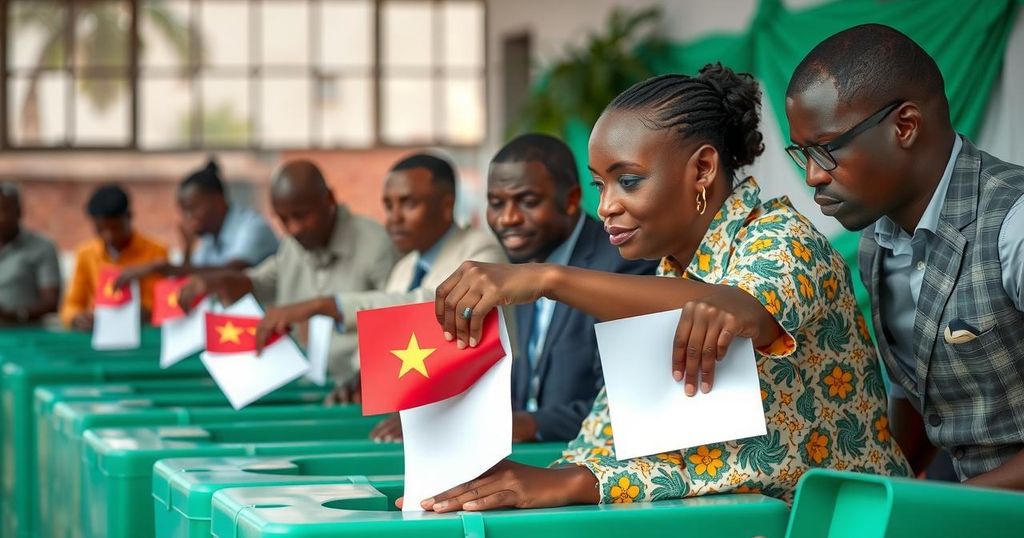Polls opened for general elections in Ghana amidst a severe economic crisis. With 18.7 million registered voters, the elections are seen as a test for democracy in a region plagued by violence and instability. The leading candidates present little promise for change, as Ghana faces soaring inflation and unemployment.
On Saturday, polls officially opened for the general elections in Ghana, marking a crucial moment for the nation amidst an ongoing economic crisis. This election is seen as a significant indicator of the health of democracy in West Africa, a region that is currently grappling with widespread extremist violence and political instability marked by recent coups. Approximately 18.7 million citizens are eligible to cast their ballots in the presidential and legislative elections, yet many observers express skepticism regarding the two leading candidates, with expectations for substantive change appearing bleak. Ghana, once a beacon of democracy within the region, now faces serious challenges including rampant inflation and high unemployment rates, casting doubts on the effectiveness of the forthcoming leadership.
The current general elections arrive at a time when Ghana is confronting severe economic difficulties, fundamentally undermining its previous reputation as a model for democratic governance in West Africa. The political landscape has been deeply affected by economic hardships, which include escalating inflation rates and insufficient job opportunities, contributing to widespread disillusionment. The broader context includes an unsettling wave of political unrest within the region, where several nations have recently witnessed coups or violent uprisings, raising concerns about the stability of democracies in West Africa.
In conclusion, the general elections in Ghana represent a pivotal test for the nation’s democracy amidst significant economic challenges. With a considerable voter base and an uncertain political atmosphere, the outcomes of the elections could either reaffirm or undermine Ghana’s historical position as a leader in democratic governance in West Africa. As citizens prepare to vote, the overarching sentiments of skepticism towards candidates highlight the urgent need for effective leadership capable of addressing the nation’s pressing economic issues.
Original Source: abcnews.go.com






